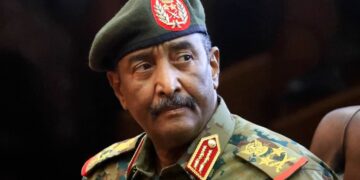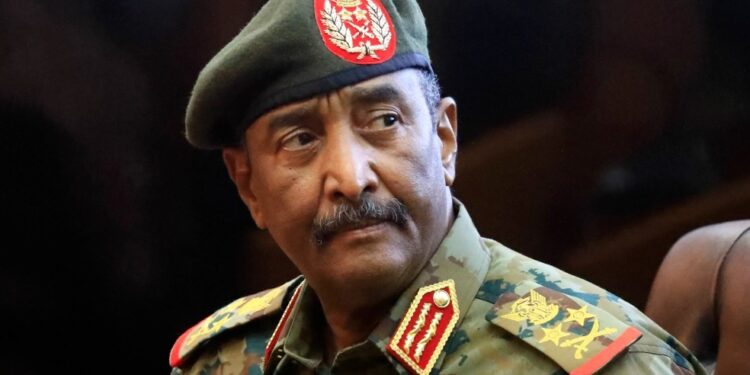By John Ikani
Sudan’s army chief, Gen Abdel Fattah al-Burhan, expressed his readiness to engage in talks with rebel leader Mohamed Hamdan Dagalo, commonly known as Hemedti, in the ongoing struggle for control of the nation.
The conflict, which began in April, has claimed over 5,000 lives and displaced more than five million people, as reported by the UN.
In a rare interview with the BBC after addressing the UN General Assembly in New York, Gen Burhan, who came to power through a coup in 2021, discussed his efforts to gain international support and legitimacy for his leadership.
Seeking international support and legitimacy, he has embarked on a global diplomatic tour, although he has yet to transfer power to civilian authorities.
Despite the UN and humanitarian organizations citing evidence of indiscriminate air strikes on residential areas, Gen Burhan denied that his forces targeted civilians.
He admitted to relocating his headquarters to Port Sudan due to the untenable situation in the capital, Khartoum.
Gen Burhan’s willingness to negotiate with Gen Dagalo, also known as Hemedti, is contingent on both sides honouring commitments to safeguard civilians made during talks in Jeddah, Saudi Arabia, in May.
“We are ready to engage in negotiations,” Gen Burhan stated. “If the leadership of these mutinous forces has the desire to return to its senses and pull its troops out of the residential areas and return to its barracks, then we will sit with any of them… Whenever he commits to what was agreed in Jeddah, we will sit to resolve this problem.”
Hemedti conveyed his readiness for political talks in a recent video message. Previous ceasefires discussed by both generals did not lead to a reduction in hostilities.
Gen Burhan dismissed concerns that Sudan would suffer a fate similar to Somalia or Libya, emphasizing Sudan’s unity and the resolve of the Sudanese people to end the mutiny, either peacefully or through combat.
The UN has observed that neither warring party is close to achieving a decisive military victory. Gen Burhan expressed confidence in defeating the RSF but acknowledged that the ongoing conflict had driven him out of the capital, rendering normal government operations impossible in Khartoum.
There is substantial evidence of civilian casualties resulting from indiscriminate air strikes by Gen Burhan’s forces, particularly in Khartoum. However, the general denied any deliberate targeting of civilians.
“This is not correct,” he asserted. “There are fabrications of some stories by the rebel forces, they bomb civilians and film it as if it was the armed forces. We are professional forces, we work with precision and select our targets in areas where only the enemy is present. We don’t bomb civilians and we don’t target residential areas.”
The conflict in Sudan has rekindled bitter tribal tensions, particularly in Darfur, where the RSF and allied militias have faced allegations of mass killings, rape, and torture.



































